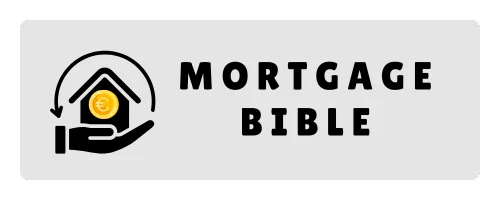Understanding the Current Landscape of AIB Mortgages
Owning a home is a milestone for many, and for most, the journey involves securing a mortgage. If you have an AIB mortgage or are considering one, questions about potential changes in rates naturally arise. Will my AIB mortgage go up in 2025? To answer this, it’s important to understand what influences AIB mortgage rates and the current economic climate.
AIB, one of Ireland’s largest banks, offers a variety of mortgage products with varying interest rates, primarily influenced by the central bank’s base rates and the lender’s conditions. Keeping an eye on economic indicators, such as inflation, government policies, and the European Central Bank’s (ECB) decisions, helps predict possible changes.
Factors Driving Mortgage Rate Changes
– Central Bank Interest Rates: The ECB’s base rate heavily impacts borrowing costs. If the ECB hikes rates to combat inflation, AIB mortgage rates often follow suit.
– Inflation Trends: Higher inflation can lead to increased interest rates as lenders aim to maintain returns.
– Economic Growth: Strong growth may prompt rate increases, while slow growth may hold rates steady or cut them.
– Housing Market Conditions: Supply and demand dynamics can affect mortgage pricing indirectly.
Current Status of AIB Mortgage Rates
As of mid-2024, AIB mortgage rates have been moderately high compared to previous years, reflecting global economic pressures and domestic factors. AIB continues to offer fixed and variable rate mortgages, each with different implications for rate changes.
Will My AIB Mortgage Go Up in 2025? Key Indicators to Watch
One of the most pressing concerns for homeowners is whether their mortgage repayments will increase in the near future. For AIB mortgage holders, this depends on a blend of economic signals and personal mortgage type.
How Variable vs Fixed Rate Mortgages Respond
Variable-rate mortgages are more susceptible to rate hikes since their interest rates reset with market changes. If the ECB raises base rates in 2025, a variable rate AIB mortgage is likely to increase.
Fixed-rate mortgage customers, on the other hand, enjoy stability for the duration of their fixed term. However, once the fixed term ends, they may face higher rates if market conditions have shifted.
Economic Indicators Suggesting Rate Moves in 2025
Economic experts forecast that inflation and global central banks will continue to influence interest rates in 2025. Key trends include:
– Persistent inflation, possibly prompting ECB rate hikes.
– Ongoing geopolitical uncertainties affecting market confidence.
– Domestic economic recovery influencing lending policies.
While predictions vary, preparing for a possible increase is prudent.
How to Prepare for Potential AIB Mortgage Rate Increases
Proactive planning is vital to manage mortgage costs effectively if rates rise. Here are practical steps to mitigate impact.
Review Your Mortgage Type and Terms
– Identify if your mortgage is fixed or variable rate.
– Understand when any fixed rate period ends.
– Check any options for switching mortgage types or renegotiating terms.
Improve Your Financial Cushion
– Build or increase your savings to cover any higher monthly repayments.
– Review your budget to accommodate potential increases.
– Consider arranging a mortgage overpayment buffer, if your terms allow.
Engage with AIB for Personalized Advice
AIB offers mortgage advisors who can discuss your current deal and options to refinance or lock in a fixed rate, providing peace of mind in uncertain times.
Exploring Alternative Mortgage Options with AIB
If concerns about rising rates are significant, exploring alternative mortgage solutions within AIB’s portfolio could be beneficial.
Fixed Rate Mortgages
Locking in a rate for 3, 5, or even 10 years might be appealing in a rising rate environment. This protects against increases but may come with slightly higher initial rates.
Tracker Mortgages
These follow the ECB base rate with a specified margin. They often offer lower initial rates but carry more risk if rates rise.
Split Mortgages
A combination of fixed and variable rates provides a balance of predictability and potential rate benefits.
What Experts Say About AIB Mortgages and Rate Trends
Financial analysts and mortgage experts emphasize the importance of staying informed and flexible.
– “With inflationary pressures persisting, we expect gradual ECB rate increases through 2025, impacting mortgage repayments,” notes an economist at a leading Dublin firm.
– Mortgage broker insights reveal many clients seek to convert from variable to fixed rates as a precaution.
Informative resources such as the Central Bank of Ireland’s website provide ongoing updates on regulatory changes and guidance.
Additional Resources and Support for AIB Mortgage Holders
To stay ahead, utilize these avenues:
– Visit AIB’s official website regularly for updates on mortgage products.
– Follow trusted financial news outlets.
– Consult with independent mortgage advisors for tailored advice.
– Check government housing support schemes that may affect mortgage terms.
For broader economic updates, refer to [European Central Bank](https://www.ecb.europa.eu) announcements and analyses.
Summary and Next Steps for AIB Mortgage Holders
Anticipating whether your AIB mortgage will go up in 2025 requires understanding economic trends, your mortgage type, and personal financial readiness. Variable-rate mortgages and fixed terms ending soon are most at risk for increases tied to ECB actions and broader economic shifts.
Taking early steps—reviewing your mortgage, budgeting for potential hikes, and consulting with AIB advisors—can safeguard your finances and reduce uncertainty. Exploring fixed or split mortgage solutions offers added security in a fluctuating interest rate environment.
If you have questions or want to plan ahead with expert guidance, reach out to khmuhtadin.com today. Taking control early empowers you to navigate upcoming changes confidently and secure your homeownership dreams.




